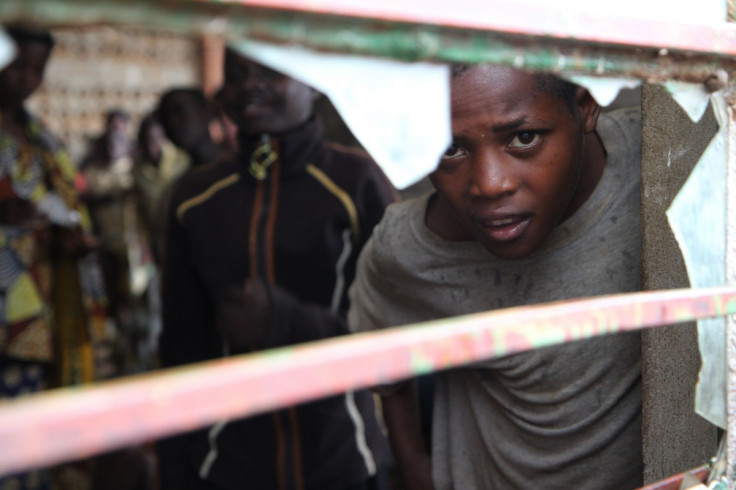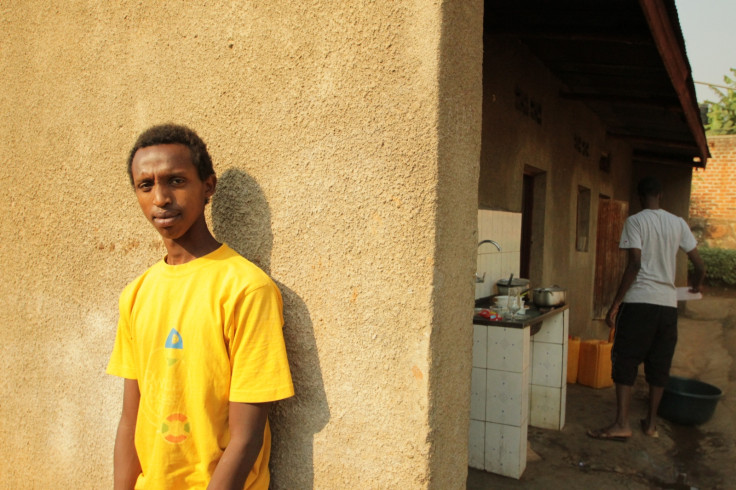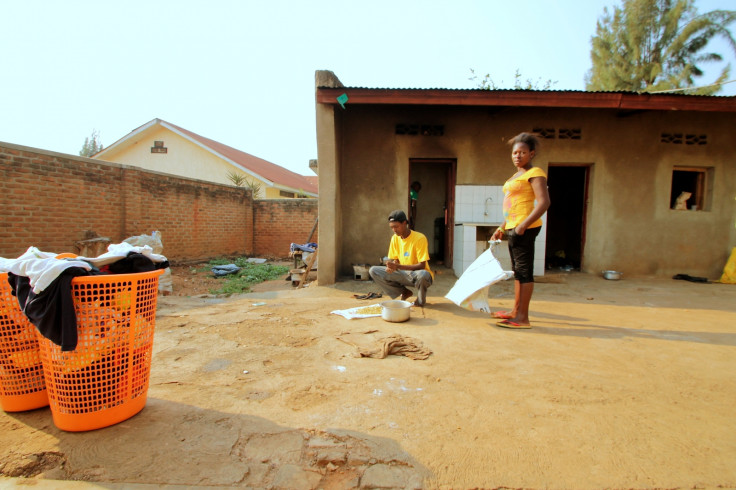Burundi: Children in refugee camps in Rwanda recruited as soldiers

Non-state armed groups, such as rebel groups and militias, are allegedly using the cover of refugee camps in Rwanda to recruit Burundian refugees and children, in what campaigners are describing as a potential violation of international law.
More than 220,000 Burundians have fled what is increasingly looking like a new civil war, just 10 years after the 1993-2005 conflict that left 300,000 dead. Fleeing a deadly crackdown by the government, more than 70,000 Burundians have fled to neighbouring Rwanda since violence broke out in Burundi in April 2015 when President Pierre Nkurunziza launched a controversial bid to prolong his term in office.
Yet, instead of finding safety in their country of exile, some refugees have been systematically recruited into armed groups.
Discover: Life as a refugee in Rwanda's capital Kigali [Photo report]
Since May 2015, at least 80 individual cases of alleged refugee recruitment have been documented by international officials who shared their findings with advocacy organisation, Refugee International.
"The arming of Burundian refugees in Rwanda would not only represent a grave violation of international law, but also a serious threat to peace in Burundi and the entire region," Michael Boyce, an advocate for the campaign group, said.
In August, IBTimes UK was already reporting the recruitment of young Burundians in refugee camps in Rwanda, after meeting Justin Girukwigomba, a 24-year-old who was brainwashed by rebel leaders within the vicinity of a refugee camp near Gashora, in Rwanda's Bugesera District.
"There, I met five men [three of whom were aged between 40 and 60] who I later understood were in charge of recruiting people like me. They would all tell me the same story, that we had all lived through the same things, that I could help them," Girukwigomba exclusively told IBTimes UK at the time.
Some refugees said recruiters told them in August that they wanted to recruit 5,000 individuals, and that all Burundians of military age were potential targets.
A number of refugees said they were told that they would fight on behalf of the opposition Movement for Solidarity (MSD) party, while others said that another Burundian party, the National Forces of Liberation (FNL) began recruiting in the camp in August, but Refugee International was not able to confirm these alleged connections.

Children recruited in the camps
Among the refugees interviewed by international officials, some whom were recruited inside refugees camp such as Mahama in Rwanda's eastern province, spoke of the recruitment of children in the 46,000-people camp. In late October and November, international officials reported they had identified at least six Burundian refugee children between the ages of 15 and 17, who had been recruited.
"The reports alleging that children −including girls − are present at training sites are particularly alarming. As a matter of urgency, all parties to the conflict must reject, and do everything in their power to prevent, the recruitment of Burundian refugees," said Francisca Vigaud-Walsh, Refugee International's senior advocate for women and girls.
According to testimonies, refugees said they were trained inside Rwanda and transported in Rwandan military vehicles. Refugees also referred to attempted transport of recruits back to Burundi via the Democratic Republic of Congo (DRC) where they entered using falsified Congolese electoral cards as identification.
A Rwandan link?
Read more: Catholic church youth group helps Burundian refugees 'hunted down' by police
International officials said they had first-hand reports regarding the training of Burundian recruits in Rwanda and the movement of those recruits to the DRC, from which they were expected to proceed to Burundi's capital Bujumbura's Gare du Nord bus station.
Training was allegedly supervised in a site located inside Nyungwe Forest National Park in southwest Rwanda where hundreds of Burundian adult and child recruits − including girls − were allegedly housed.
These officials said they had reports that the recruits − including the children − completed training in the use of weaponry, and that both speakers of Kirundi (an official language of Burundi) and Kinyarwanda (the official language of Rwanda) where seen wearing military uniforms and conducting the training. Some uniforms were allegedly bearing Rwandan flag patches.
"The alleged recruitment of Burundians in Rwanda – the country where they sought refuge – creates an impossible situation for Burundian civilians in search of peace and safety. If these allegations are true, the rights of Burundian refugees are being twice-violated" said Vigaud-Walsh.

Refugees told 'Join or die'
Meanwhile, multiple refugees who refused to enlist said that recruiters threatened them with death or disappearance. One was told his "medicine is on the stove," meaning his case would be dealt with imminently, and another that he "will disappear into the Akagera river".
The Akagera river made headlines when, in August 2014, fishermen in Burundi claimed to have found 40 corpses wrapped in plastic floating with their limbs bound in Lake Rweru off the river bordering Burundi and Rwanda.
Refugees described how they were sleeping in camp showers or latrines to protect themselves, and those concerned have asked international groups and local authorities for protection.
Some refugees who complained about recruitment to Rwandan officials were told they would be arrested if they pursued their claims. One refugee who sought protection alleged that a Rwandan police officer said: "If you love your country, you will do what they say. If you come back and talk about this issue again, you will be put in jail."
"In that context, refugees' claims that some Rwandan officials turn a blind eye to recruitment, and possibly even facilitate it, are deeply disturbing," Boyce added.
Rwanda to ensure recruiting ceases
Refugee International is calling on Rwanda to ensure that all recruitment of Burundian refugees ceases immediately. It also urges the United Nations and African Union to sanction any individuals – whether Burundian or Rwandan – who violate the civilian and humanitarian character of asylum.
"The international community must make sure Burundian refugees are protected, and it must impose sanctions against any actors who threaten them," Boyce added.
Seraphine Mukantabana, Rwandan minister for disaster management and refugee affairs, visited Mahama in October where she directly addressed allegations of recruitment, reminding refugees that they are "civilians" who should not engage in political or military activities.
In a speech, Mukantabana said the Rwandan government would post rules governing the employees of international organisations working in Mahama camp "to explain what they can do and what they cannot do".
"If we visit the camp during the evening and we find you in a tent with these officials, we will treat you and them as traitors," she added.
Public tensions between the governments of Burundi and Rwanda rose in August after it emerged that many Rwandan nationals were being held by Burundian security agencies.
© Copyright IBTimes 2025. All rights reserved.






















